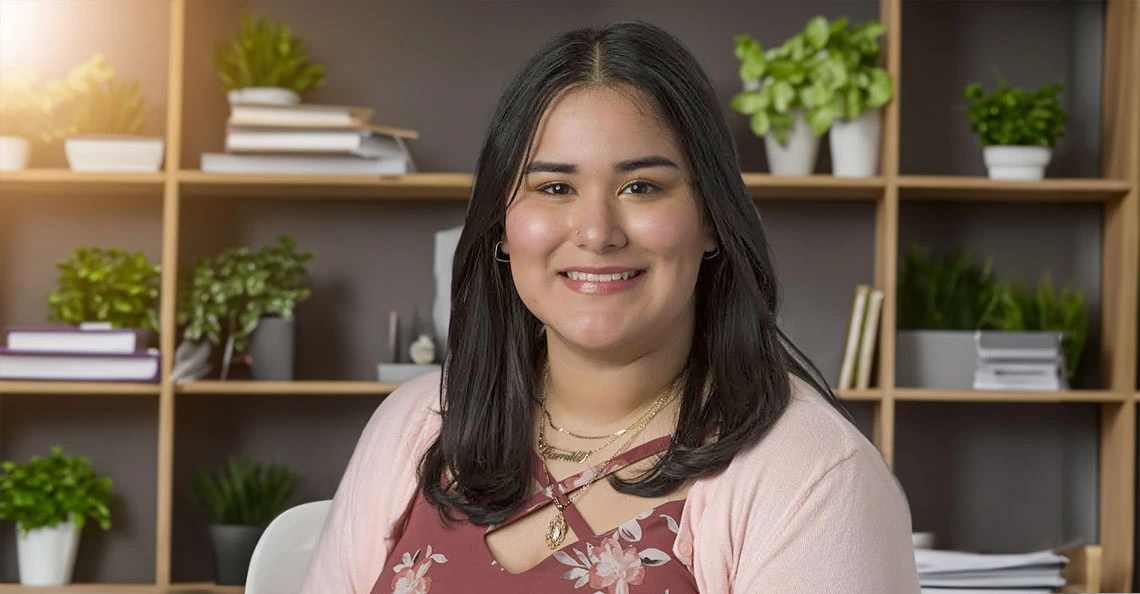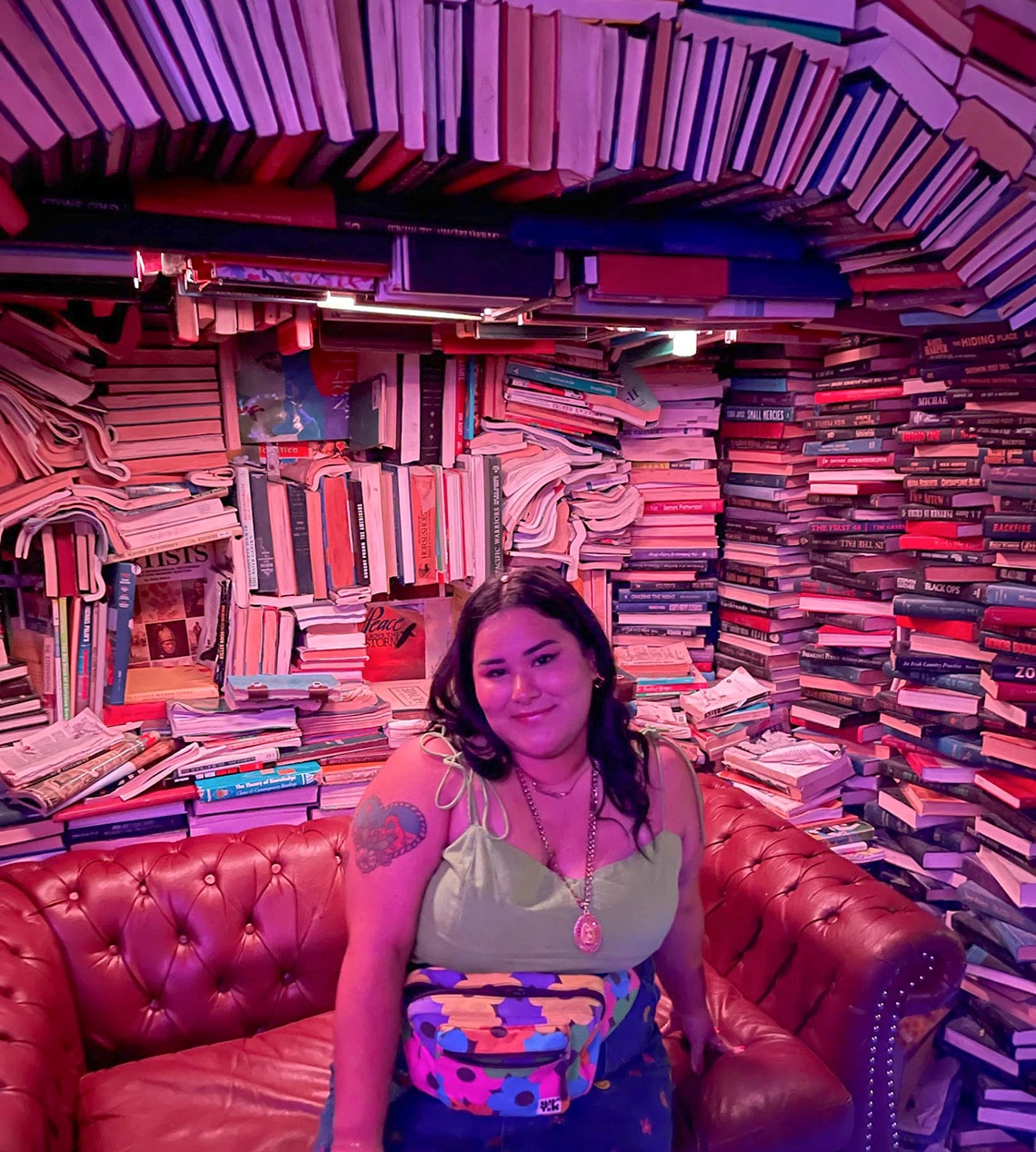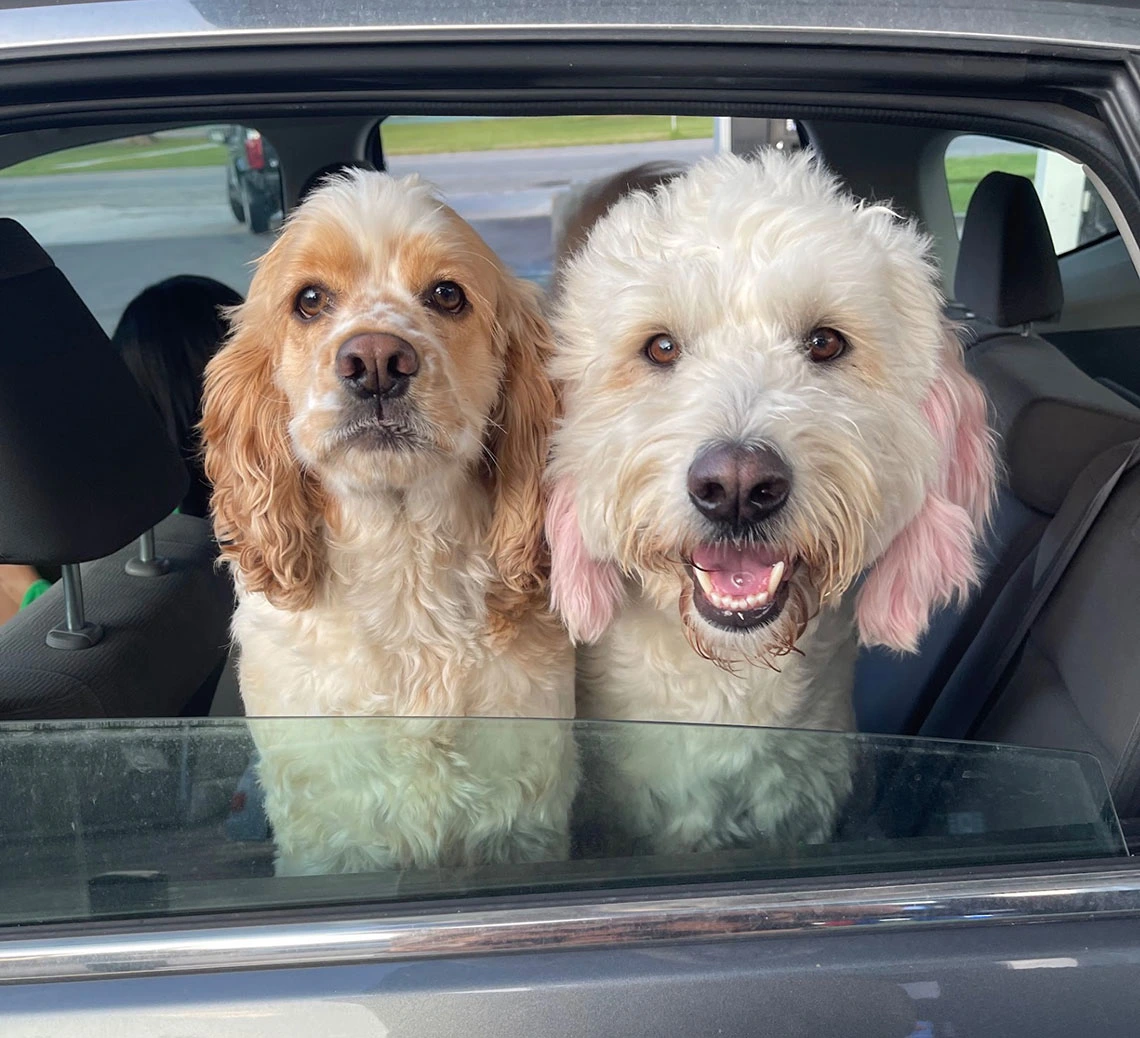Breaking Barriers: 7 Questions with Camila Becerril, MLIS ’23 (Online)
INFOSCI STUDENT PROFILE

Being a first-generation college graduate means the world to me because it goes beyond just earning a degree—it's about breaking barriers and paving the way for others in my community.
Camila Becerril, an online student who recently graduated from the College of Information Science’s Master of Arts in Library and Information Science program, lives in Ogden, Utah. In addition to her MLIS, she holds a Bachelor's in Professional and Technical Writing, with a minor in literary editing, from Weber State University. In this insightful profile, she shares her perspective on being a first-generation student, the essential nature of library socialism, the collaborative spirit of the MLIS program and more.
Tell us about your experience as a first-generation college student.
Being a first-generation college graduate means the world to me because it goes beyond just earning a degree—it's about breaking barriers and paving the way for others in my community. I've always been passionate about connecting people and fostering inclusivity. Whether it's working with my community or diving into tech writing with the aim of simplifying information, I believe in getting people the help they need in the best way possible. Being the first in my family to graduate from college is not just a personal achievement, it's a chance to show others that education is a powerful tool for positive change. I'm excited to use my skills to bridge gaps, make information accessible and contribute to a more connected and supportive community. This journey isn't just about me: it's about opening doors for those who come after and proving that dreams don't have prerequisites.
What brought you to the University of Arizona to earn your MA in Library and Information Science?
I chose the University of Arizona and the College of Information Science for my degree for two important reasons: affordability and the convenience of a fully online program. This combination not only makes pursuing my education financially feasible but also allows me the flexibility to balance my studies with other commitments. U of A's commitment to quality education, coupled with the accessibility of an online format, made it the perfect fit for my academic journey.

While visiting Denver, Camila stopped at Meow Wolf. Who knew it would provide such a cozy, natural nook for a library and information science graduate student? Photo courtesy Camila Becerril.
What areas most excite you in the field of library and information science?
In my degree, I am particularly drawn to the concept of library socialism and its potential to serve as a dynamic force for advancing social justice and community empowerment. The idea that access to information and knowledge can be a catalyst for leveling societal inequalities resonates with me. I am excited about the transformative possibilities of library socialism in redefining traditional library service models. Instead of solely focusing on collection development, library professionals can play a more active role by forging partnerships with community organizations, engaging in outreach to underserved populations and advocating for the significance of libraries as community institutions. The call to actively participate in political and social issues aligns with my belief in the library's role as a platform for advocacy on matters like immigration and LGBTQ+ rights. The potential impact of library socialism is immense, but realizing it demands a shift in service paradigms and political engagement and a steadfast commitment to ensuring access to information and knowledge for all citizens. It is all very exciting to think about.
What do you like best about the U of A Master’s in Library and Information Science?
What I appreciate most about my MLIS degree program is the vibrant atmosphere of graduate school, where individuals deeply passionate about their respective fields come together. This dynamic environment fosters unparalleled connections with peers who share a similar enthusiasm for library science! The collaborative spirit is particularly evident in the outstanding group projects, where all of our diverse perspectives converge to create something truly exceptional. The collective dedication to academic excellence and shared passion among my peers elevates the learning experience, making my degree program not just a curriculum but a community of like-minded individuals committed to pushing the boundaries of knowledge together.
Tell us about your recent internship.
For my capstone project, I had the incredible opportunity to intern at my alma mater, Weber State University, within their Special Collections department. Immersed in the innovative initiative known as "Queering the Archives," our mission was to not only preserve historical LGBTQ+ practices but to elevate them as a focal point of study. This endeavor aims to honor and recognize unique expressions and identities specifically in northern Utah, ensuring they become integral parts of the human historical narrative. During my internship, I actively contributed to the Queering the Archives project by organizing and cataloging a donated personal collection from an LGBTQ+ community member. It was truly fascinating to delve into the LGBTQ+ history of northern Utah through this individual's eyes, revealed through diaries, magazines, clippings and a captivating array of art collections. The experience not only enriched my understanding of local history but also underscored the importance of preserving diverse narratives for a more inclusive and comprehensive historical record.

Camila Becerril's dogs have kept her company through many nights of homework, as well as the occasional car trip. Photo courtesy Camila Becerril.
What do you enjoy outside of school?
Outside of school, I like to travel and see new places! I’ve been to Spain, Miami and Denver so far! I also love my dogs and all forms of art, especially reading!
What advice do you have for prospective College of Information Science students?
Take the time to connect with your professors. Beyond their role as educators, they bring unique stories and insights to the table. Building a rapport with them not only provides an opportunity to tap into their wealth of knowledge but also establishes a supportive relationship that can be instrumental in navigating your academic journey. Professors are often the best resource for answering questions, offering guidance and enriching your learning experience with their real-world perspectives. Don't hesitate to engage with them, as these connections can open doors to mentorship and a deeper understanding of the subject matter.
Explore the Master of Arts in Library and Information Science, offered on campus and online, or support College of Information Science students through scholarships and other important programs.

